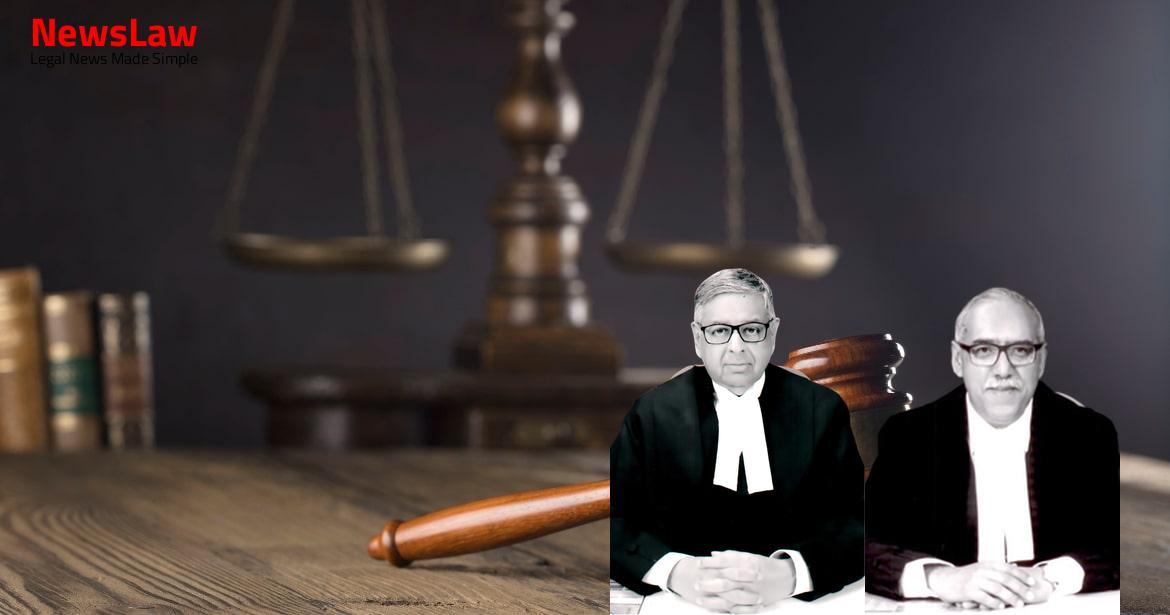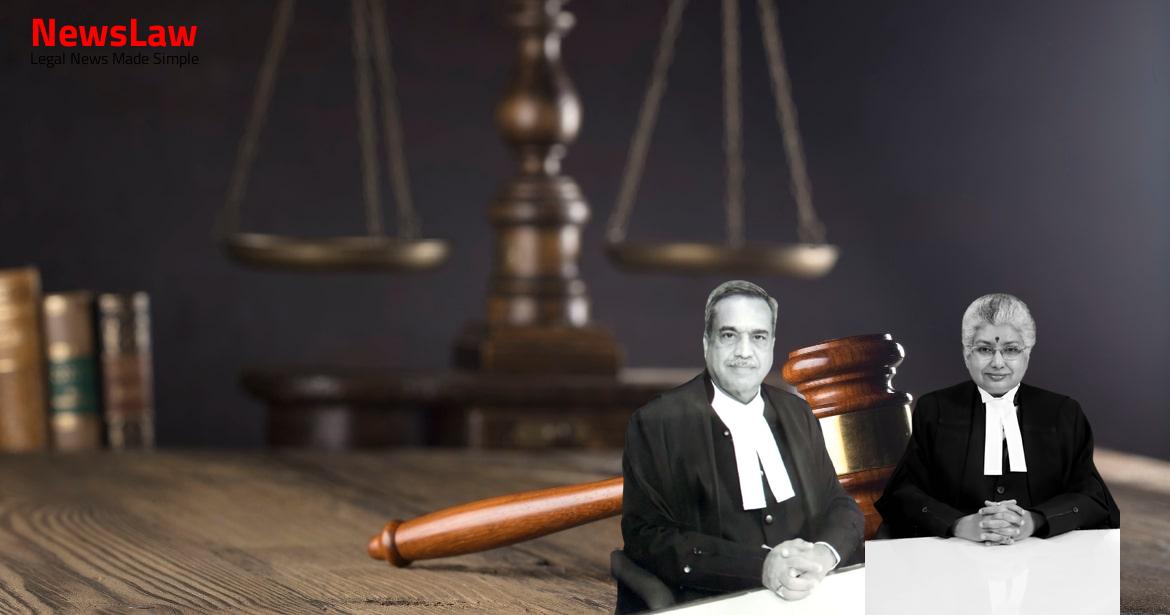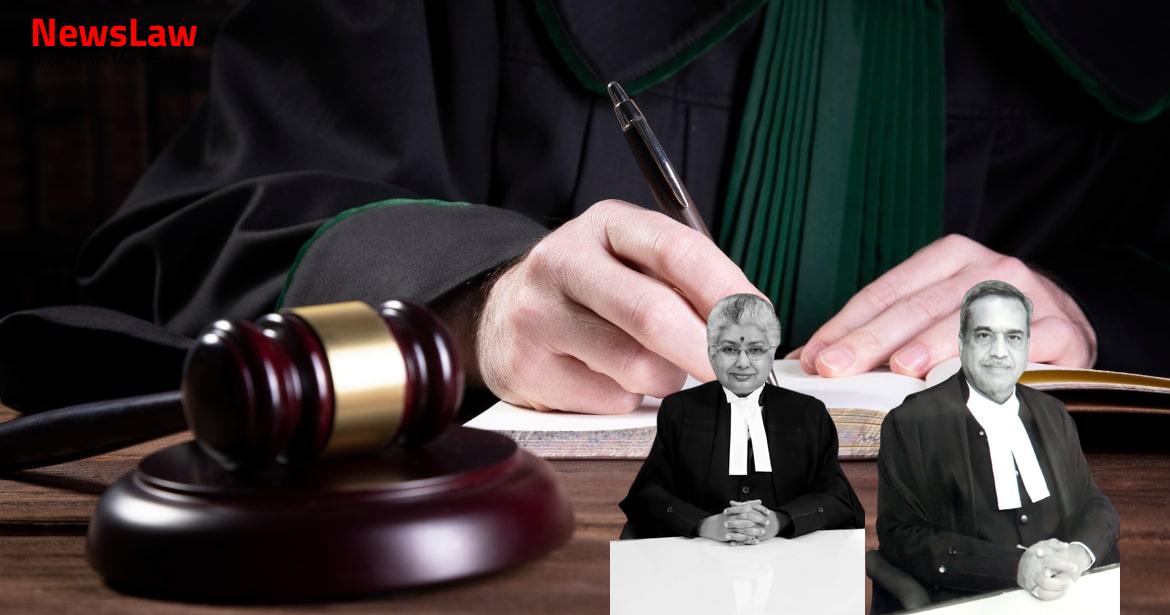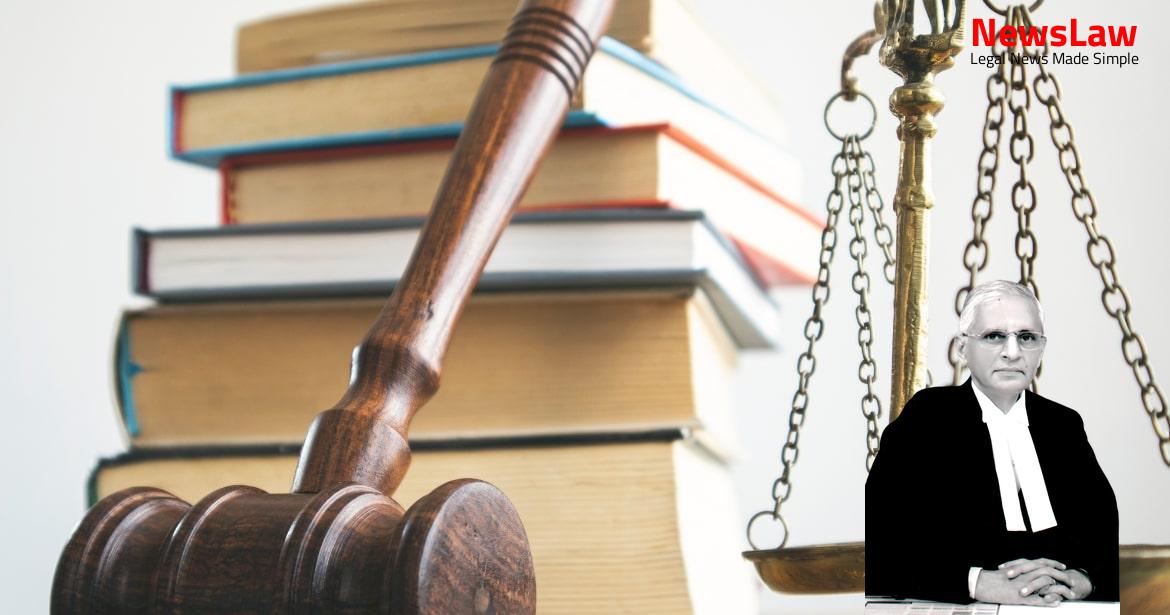The Supreme Court delivered a significant judgment on the issue of judicial superintendence, focusing on the jurisdictional dispute between the High Court and the Armed Forces Tribunal. In the case of Union of India vs. Major General Shri Kant Sharma, the Court clarified the High Court’s authority to exercise writ jurisdiction over matters related to Armed Forces personnel, including reviewing orders passed by the AFT. The judgment sheds light on the balance of powers between the High Court and the Tribunal in upholding the principles of constitutional interpretation and judicial independence.
Issue
- Issue raised in the appeal is whether an appeal against an order of a single judge of a High Court related to an Armed Forces personnel should be transferred to the Armed Forces Tribunal or heard by the High Court.
Also Read: Interpretation of Pre-deposit Requirement under SARFAESI Act
Arguments
- Ms. Preetika Dwivedi, counsel for the appellant, argues that the Allahabad High Court’s view is incorrect.
- She cites a decision of the Supreme Court in Union of India vs. Major General Shri Kant Sharma And Another to support her argument that the AFT exercises powers of all courts except the Supreme Court or High Court under Article 226 and 227.
- The counsel asserts that even though the AFT has broad powers, it does not have the jurisdiction of the High Court to exercise under Article 226 of the Constitution.
- Section 34 of the Act clearly states that all suits and proceedings pending before any court, including High Court, will stand transferred to the Tribunal, indicating a transfer of pending matters to AFT but not the entire jurisdiction of the High Court.
- The High Court retains the power to exercise its writ jurisdiction, including reviewing orders passed by the AFT, despite the establishment of AFT.
Also Read: Inquiry and Cooperation: NCPCR vs. WBCPCR Judgment
Analysis
- Judicial superintendence over decisions of all courts and tribunals within respective jurisdictions is a basic structure of the Constitution.
- Intra-court appeal to a Division Bench may be provided for under the Letters Patent or special enactment for correcting judgments within High Courts.
- Appeal against the order of a High Court judge should not be heard by a Tribunal comprising retired judges.
- Rejecting the contention that intra-court appeals must be transferred under Section 34 of the Act.
- Judges of Tribunals cannot be considered effective substitutes for the superior judiciary in constitutional interpretation.
- Contending that judicial independence could be compromised if High Courts are made subordinate to Tribunals.
- Alternative remedies must be efficacious; expecting NCOs or JCOs to approach the Supreme Court in every case may not be justified.
- Rule of prudence, not a rule of law, that High Courts should not exercise extraordinary writ jurisdiction when alternative remedies are available.
- Power of judicial review vests with the High Court even over orders passed by the AFT, as it is part of the basic structure of the Constitution.
- High Courts can decide case by case whether to exercise their extraordinary writ jurisdiction or not; blanket ban would denude their jurisdiction.
- Tribunal under the Armed Forces Tribunal Act is not a substitute for the High Court in writ jurisdiction, specifically excluded under Section 14(1) of the Act.
- High Courts can justify exercising writ jurisdiction if glaring illegality is committed by the AFT.
- The belief in insulating superior courts with elaborate provisions to prevent interference with their decisions.
- The power of High Courts and the Supreme Court to test the constitutional validity of legislations can never be ousted or excluded.
- Existence of alternative remedy does not oust High Court’s jurisdiction as a Constitutional Court under Article 214 and courts of record under Article 215.
- The order of the High Court can only be challenged before the Supreme Court.
- The power of judicial review vested in the High Court under Article 226 is a basic essential feature of the Constitution and cannot be overridden by any legislation, including the Armed Forces Tribunal Act, 2007.
- The jurisdiction of the High Court under Article 226 and the Supreme Court under Article 32 cannot be limited by any enactment, but must be exercised in accordance with the legislative intent reflected in the provisions of the Acts.
- Judicial review is considered an integral and essential part of the Constitution, forming a part of its basic structure.
- While the High Courts and the Supreme Court have the power to strike down laws, the Constitution also provides detailed provisions regarding the tenure, salaries, retirement age, and selection mechanism of Judges in superior courts.
- The term ‘other proceedings’ in legislation should be interpreted broadly to include all appeals, consistent with the role of Tribunals as substitutes for High Courts in certain matters.
- The judiciary must be capable of effectively performing judicial review to ensure the balance of power envisioned by the Constitution is maintained.
- The judgment by two judges cannot overrule the judgment of the Constitution Bench in L. Chandra Kumar
- The judgment in L. Chandra Kumar remains binding and cannot be ignored
- The hierarchy of judgments must be respected, with the Constitution Bench having the highest authority
- It is not necessary to indicate in the order of discharge whether consideration for alternative service took place or not.
- The order of discharge does not need to specify if the appellant’s case was considered for alternative service.
- The appellant’s name was considered for two categories before discharge, but he did not meet the height criteria for appointment to either post.
- The appellant’s case was considered as per the extant policy, but he was found unfit for appointment.
- The appeal has no merit and is dismissed.
- Pending application(s) are disposed of.
Also Read: Prabhakar Tewari vs Vikram Singh and Malkhan Singh
Case Title: BALKRISHNA RAM Vs. UNION OF INDIA (2020 INSC 26)
Case Number: C.A. No.-000131-000131 / 2020



